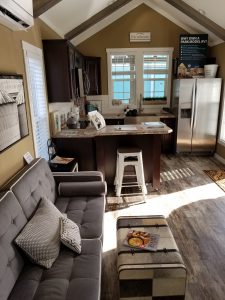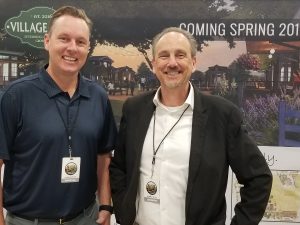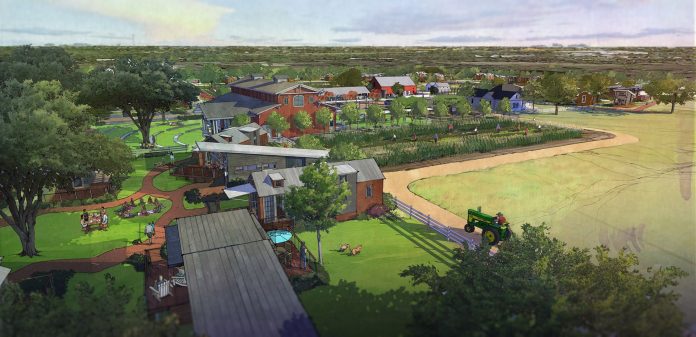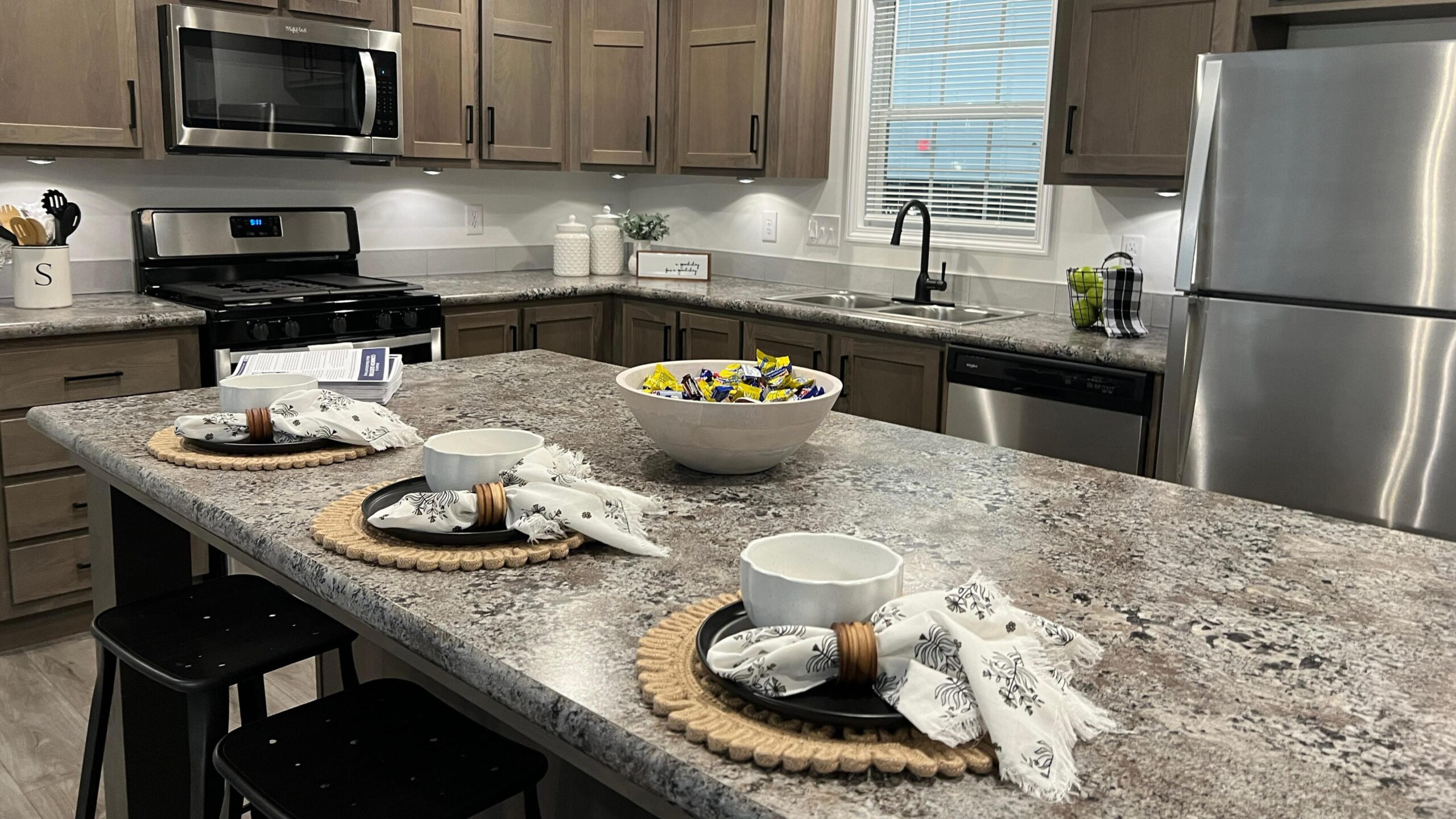Village Farm Tiny Home Community Includes Group Gardening, Music, Transportation, Cooking and Meals
Just east of Austin, Texas, a group of housing and “community experience” professionals will incorporate a tiny home community into the mix of what will mark 50-plus years of manufactured home and RV park success.
“We are talking to people about lifestyle, sustainability, community and like-mindedness,” said Scott Roberts, owner of Roberts Resorts. “Oh, and they’re affordable.”
Affordable housing is in great demand, especially in the larger and warmer metro locations throughout the country. However, Roberts and his sales team anticipate very little of selling the affordability. That’s because they expect the key lifestyle amenities for the tiny home community to carry the conversation.
“The houses are going to back up to the community’s organic garden and face an open green space,” Roberts said. “There will be a rustic barn, too, for culinary projects. We’re going to have hay in the barn and white linens on the table.”
Roberts Resorts Enters Arena of Tiny Home Community

Roberts Resorts has RV parks and manufactured home communities in Alabama, Arizona, Colorado and Texas. An addition to Village Farm’s neighbor, the Roberts Resorts-owned Oak Village, will be the company’s initial foray into tiny homes. It will include 42 RV sites re-designated for tiny homes.
The complete tiny home village to open in early 2020 will be a 112-space all ages community with homes from Athens, Clayton, Platinum and Wheelhaus tiny homes.
Most homes at the tiny home village will cost about $82,000, with the potential for some models to reach $150,000. Additionally, residents will be responsible for monthly payment of lot rent at about $600.
Village Farm residents will get a slate of programmed activities, a general store in the community, parking spaces at the edge of the community, a water-harvesting program, sharable meals with an “Austin Authentic” menu, as well as community transportation that could include a shareable zip car.
“There’s a full amphitheater off the barn, and we’re going to program this for 300-plus seating and a regular schedule of music and entertainment events,” Roberts said. “That component will include the hiring of a full-time event coordinator and community programming professional.”
In addition, Village Farm may feature an annual artist in residence, whether that is a musician, potter or painter, or a theatrical performer.
How the Tiny Home Community Concept Came About
As Roberts and Vice President of Sales and Marketing Ernesto Iglesias engaged in conversation about what Village Farm might be, they landed on an interesting question.

“Why aren’t we developing towns and neighborhoods like they did 300 years ago in Europe?” Iglesias reiterated. “That’s what we want to do, but we’re doing it with park models that look like tiny homes.”
The park model tiny homes will be built and placed to RV standards. However, they will have a look and feel of the tiny homes many people see on HGTV shows. Each home will be energy efficient, not just for the individual, but for the the tiny home and wider community. As a result, overall living expenses will be reduced.
And the central landscaping will create a “pocket park” effect within the community.
“When you go out to get your groceries, you’re going to walk in by your neighbors,” Iglesias said. “This is not the community where you can pull a car into a garage and close the door. The walkable nature will create a real sense of place and destination.”
Affordability of the Village Farm Tiny Home Community
Roberts said research they’ve conducted shows Village Farm and the concept of a complete tiny home community will be attractive to first-time buyers, millennials, single women over the age of 45 and many retirees.
Furthermore, the concept is finding support from the wider community, both for its lifestyle sensibility and affordability, Iglesias said.
“Every single city council person we talk to has some kind of affordable housing initiative,” Iglesias said.
Austin, Texas is the fastest growing city in the country, as reported by Forbes magazine. And in 2017, the city eclipsed the $400,000 mark for average home price, according to a recent report from RealtyAustin.














